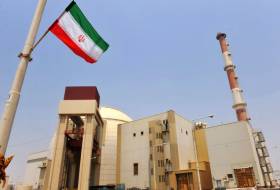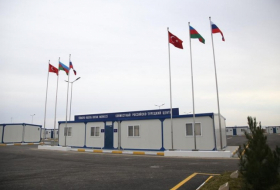In 1973, astronauts on the US space station Skylab downed tools and refused to communicate with mission control. They had complained of being overworked, and when their request for more lenient schedule was denied, they took matters into their own hands – spending an entire day admiring the view from the windows and doing little else.
“We had been overscheduled,” astronaut William Pogue later wrote. “We were just hustling the whole day. The work could be tiresome and tedious, though the view was spectacular.”
Their defiance came just over halfway through an 84-day mission. The astronauts later referred to the incident as their “strike”, others called it a “mutiny”. Either way, it was one of the first indications that prolonged trips into space were going to bring extra challenges that hadn’t surfaced in the relatively quick visits astronauts had previously undertaken.
As humans get more serious about going to Mars, one of the biggest threats to such a mission could come from the psychological state of the crewmembers themselves.
Researchers are looking to Antarctica to test how our mental health will respond to long-haul space travel. It’s a good analogue for several reasons: it’s dark, with the South Pole having several months of total night over winter, taking away the day-night cycle we’re used to; it’s bitterly cold, with temperatures reaching -80C (-112F) so going outside is difficult. Then there’s the isolation. It’s physically isolated – depending on where exactly you are, evacuation over winter might be impossible. And it’s socially isolated – you live in close quarters with the same few people day-in, day-out.
The Skylab mutiny could have been an example of the “third quarter phenomenon” reported by polar explorers and others. This occurs when people realise they have as long left in their inescapable situation as they have already lived through, and lose motivation. Though not everyone agrees it exists, the phenomenon does appear to show up in various situations, including simulated space missions.

The isolation of polar settlements is a good stand-in for the isolation of long space voyages (Credit: Esa)
It’s something that Gro Mjeldheim Sandal, a professor in psychosocial science at the University of Bergen, Norway, expected to find when studying the emotions of 27 people at the Concordia Station in Antarctica, where the mean temperature outside is -51°C (-60F), and access to the station is only possible from November to February. But instead of becoming depressed halfway through their stay, participants went into a kind of "psychological hibernation" where they became emotionally flat and detached.
In some ways, this hibernation could be a good thing, helping crew members save resources, and make it through their confinement without burning out, says Sandal. But despite the potential positives, psychological hibernation could come with risks too – especially if something similar were to happen on a months-long flight to Mars. “If there is an emergency situation, people need to react very quickly,” she says. “So during a long-duration space mission, the safety aspect is a concern.”
Sleep will also play a key role in how astronauts react to the mental demands of a Mars mission
In fact, she says, people planning such space missions are well aware of the risks that boredom and monotony could bring, and need to actively find ways to counteract them, through entertainment tailored to crew members, for example.
Sleep will also play a key role in how astronauts react to the mental demands of a Mars mission. But getting a good night’s sleep is tricky when there’s no natural day-night cycle. On Earth, our sleep-wake cycle is regulated both by how tired we are, and by daylight. “[Astronauts] won't be able to use that light cue to synchronise their sleep-wake patterns,” says Joanne Bower, a sleep researcher at De Montfort University in Leicester, UK. “People who don't keep a kind of strict schedule then suffer much more with their sleep patterns.”
It’s something that’s been seen before in simulated Mars missions on Earth. On the 17-month Mars-500 analog mission that ended in 2011, four out of six crew members suffered sleep disorders. One crewmember was chronically sleep deprived, and another eventually ending up on a sleep schedule entirely out of synch with the rest of the group.

ISS astronauts are a perfect candidate group if you want to find people to travel to Mars (Credit: Nasa)
“If people sleep better, they tend to react to the environment better as well,” says Bower, whose main research focuses on how sleep and our emotions interact on Earth. “Protecting your sleep wellbeing is really critical to being happy and healthy, in life as well as in space.”
There are some aspects of a long-duration space mission we can’t simulate on Earth. On a trip to Mars, for example, there will come a point when Earth is no longer visible to astronauts, reduced to just a tiny speck of light in the sky. Yet we know that astronauts report seeing Earth from space is one of the best things about their trips. “If one of the things that's really keeping them positive and upbeat is this sense of perspective you get from seeing Earth from afar, that's not going to be there anymore for months at the time,” says Bower. “So we need to be able to find other things that they can draw on.”
Bower and her colleagues came up with a 23-item mental health checklist for space travellers, tested on people working in Antarctica over winter. They found that people’s emotions became more variable over time. “The longer that they were there, the more their emotions would go up and down,” says Bower.
Astronauts ignoring their own mental state will be out of the question
It also became clear that focusing on positive emotions could be key to understanding the psychological traits that will help someone on a long trip in space. “The people who did better reported doing more of things like really holding on to the positive, savouring good things,” says Bower. “They tended to focus much less on the negatives, so they wouldn’t turn things over in their mind and try to fix it.”
While ignoring things that are going wrong might seem counterintuitive – after all, something going wrong in space could be disastrous – in some situations it really could be the best option. “If you’re in space and there's nothing you can do about it, to some extent, minimising it and putting it to the back of your mind might be the healthiest thing you can do,” says Bower.

The Mars 500 programme tried to keep its test subjects busy enough to avoid depressive thoughts (Credit: Esa)
But astronauts ignoring their own mental state will be out of the question. With up to a 22-minute communications delay on any trip to Mars, astronauts won’t always have easy access to people back on Earth to talk to, so they’ll need to monitor their own mental health, and do what they can to self-correct. “It's not so much about them being able to feed back to a psychologist or psychiatrist on the ground, but also about being able to be self-aware,” says Bower.
Finding people with these qualities will be the first step to selecting a crew to go to Mars or further afield. Six months on the ISS is not exactly a walk in the park, so the basic astronaut selection process would be the obvious place to start. “You don't need a completely different type of astronaut to do a longer mission,” says Sandal.
As well as being able to withstand boredom, it might help if crews tend towards introversion. “We need to compose crews who do not have a very big need for social variability,” she says. “So more introverted crew members, I would guess, would be a necessity. Beyond that emotional stability, like on all flights, is the single most important psychological qualification.”
You do feel when you're in the VR headset like you've been removed from your day-to-day environment
A compatible team is also important, and Sandal is now looking at data she’s collected from Russian cosmonauts to investigate how team functioning and cultural variability affects performance.
Once the ideal team has been assembled, tweaks to the environment on the spacecraft will help keep them in good spirits.
We know that exposing people to nature on Earth can help reduce stress levels and improve concentration, through something known as attention restoration theory. But on a spaceship, real nature will be in short supply.
Jay Buckey, a professor of medicine at Dartmouth College in New Hampshire and a former astronaut who flew on Nasa’s Space Shuttle flight STS-90 in 1998, is running an experiment using virtual reality (VR) on the US South Pole and Australian Antarctic stations this winter. It’s an attempt to see if it can help with the psychological demands of being isolated. “You do feel when you're in the VR headset like you've been removed from your day-to-day environment,” he says.
The experiment is still ongoing, but he says that early feedback suggests the headsets are being used by those at the stations, which suggests they may be finding them helpful. The virtual scenes available include an Australian beach, the Bavarian Alps, the Irish coast, and fall in New England – plus Boston, in case any of the participants might benefit from feeling immersed in the hustle and bustle of city life.

How will astronauts cope when they can no longer see Earth from a viewport? (Credit: Nasa)
He tested a similar set up during a Hi-Seas Mars analogue mission in Hawaii, asking participants which environments they liked the best. High-definition nature scenes ranked the highest, but some participants enjoyed the city too. “There were some people who actually liked having the city scene, because one of the things they were missing was just other people being around,” says Buckey.
VR could even help combat any low mood caused by “Earth-out-of-view” phenomenon, through a virtual window that could simulate seeing Earth from space.
Building in downtime and relaxation – as discovered during the Skylab strike – will also be vital. Astronauts are already trained in how to relax effectively in the little spare time they get on board the International Space Station, and Sandal thinks adding in things like yoga and meditation to astronauts’ physical training routines could help crew destress en route to Mars – providing they can find an effective way to practice yoga in weightlessness.
Given our determination to eventually reach Mars, staying sane on the journey there is a problem worth solving. “The psychological aspect is a really important one to deal with, because if it's done right, the missions can be truly amazing,” says Buckey. “But if it goes wrong, it's the kind of thing that can end a mission.”
BBC
More about: space















































